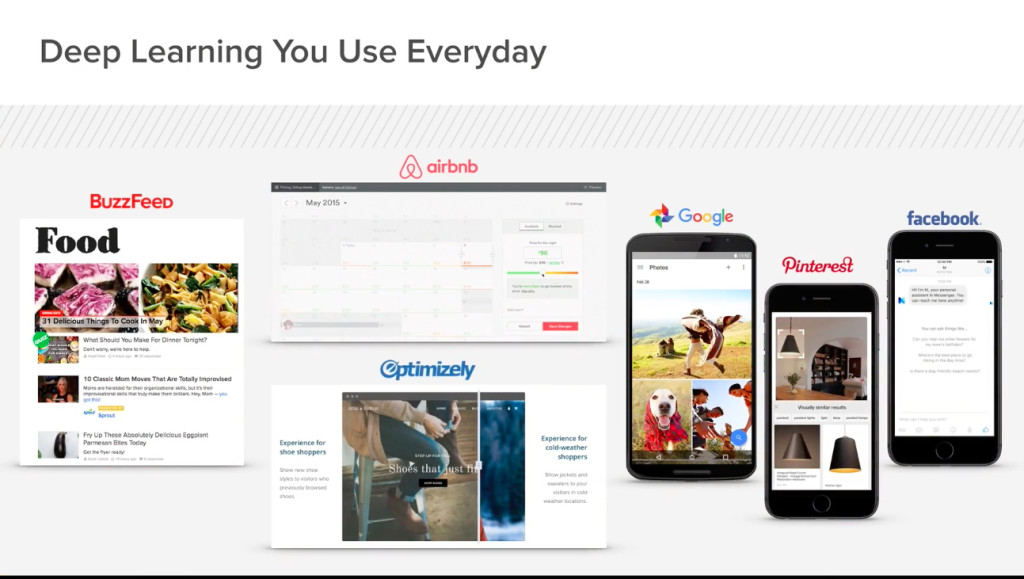
Robohub.org
“Deep learning is the most fundamental advance in AI research since AI started in 1956”

Screenshot from presentation about deep learning we may use everyday. Source: Frank Chen, with Andreessen Horowitz
Frank Chen, a partner at Andreessen Horowitz, the Silicon Valley venture capital and private equity firm, said, “It is absolutely non-controversial that deep learning is the most fundamental advance in AI research since the start [of A.I.] in 1956.”
In the 45-minute podcast primer shown below – a worthwhile investment of your time – he went on to say:
“We [Andreessen Horowitz] think AI and deep learning can be a fundamental and technology platform shift as mobile and cloud have been in the last 5-10 years … All the serious applications from here on out need to have deep learning and AI inside in exactly the same way that all serious computing systems needed to have Intel chips inside of them. I think now about the startups that we see, that deep learning needs to be inside these new systems as a fundamental technique that we expect to see in all serious applications moving forward.”
Enjoy. It’s an informative primer.
tags: AI, Artificial Intelligence, Deep Learning


